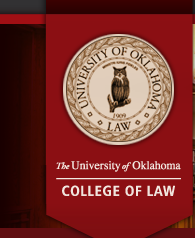Document Type
Article
Publication Date
2023
Publication Title
American Criminal Law Review
Abstract
Concerns about police abuse and overcriminalization are on the forefront of public conscientiousness. In spite of the Black Lives Matter movement and calls for police reform, law enforcement officials enjoy a variety of criminal procedure loopholes and double standards, which the United States Supreme Court has ratified through its creation of the open fields, mistake of law, and third party doctrines, as well as its acceptance of deceptive police practices. This Article analyzes the asymmetries between permissible civilian conduct and permissible police conduct to make a broader, systemic critique of the double standards and loopholes that pervade constitutional criminal procedure. It further seeks to provide a starting place for reconciling an individual's rights under the Fourth, Fifth, and Sixth Amendments with permissive police practices. As it now stands, police may openly trespass on fenced, private fields with posted warning signs, lie or fabricate evidence during an investigation to extract a confession, excuse a wrongful stop or arrest by claiming a mistake of law, and obtain warrantless access to information shared with entrusted businesses, though such information is ordinarily protected against public disclosure. By allowing these practices, the Court, at the expense of privacy and other rights, endorses acts for which members of the public would be criminally sanctioned. The perpetuation of these double standards, loopholes, and asymmetries can trigger serious unintended consequences. Cognitive dissonance can result when individuals discover that their expectations of the law conflict with its actual operation and when their expectations of privacy and other rights are consequently upended. To remedy the cognitive dissonance, a person might retreat into isolation. This retreat can negatively impact social capital, or the benefit that accrues from networking and social interactions. Moreover, as individuals discover the double standards and loopholes afforded to police, they may perceive the criminal justice system as unfair and lose trust in the laws, police, and, ultimately, the government's legitimacy-which could itself culminate in disobedience of laws. Therefore, this Article proposes an elegant, easily administrable rule: the Court should cease to privilege these asymmetries over individual rights and recalibrate doctrinal police policies to conform to societal norms and public expectations. The courts, governmental bodies, and law enforcement entities should eliminate these asymmetries to secure the public's trust and confidence.
Volume
60
First Page
231
Recommended Citation
Eang L. Ngov, Asymmetries, Norm Matching, And The Pursuit Of Equity Between The Police And The Public, 60 Am. Crim. L. Rev. 231 (Spring, 2023).
Included in
Civil Rights and Discrimination Commons, Constitutional Law Commons, Criminal Procedure Commons, Fourth Amendment Commons
